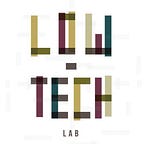[EN]APRIL ACTIVITIES BY LOW-TECH FOR REFUGEES
Discover some concrete examples of the activities organised by Low-tech for Refugees over this last month of April 2019!
[Français]
What do we mean when we mention a…
…Community building event:
Saturday 6th of April, in Mosaik — Support center for refugees and locals
In the Mosaik support center, run by Lesvos Solidarity,we welcomed over 50 participants, of which a vast majority were unfamiliar with the concept of low-technologies and the project Low-tech for Refugees, for an awareness raising event. During that day, several activities were simultaneously running. This resulted in many new members joining our community and showing interest to engage further with the project.
We offered the following activities:
Learning about low-tech and how they can be used by refugees and locals:
We held an exhibition, where visitors could see and try some of the low-techs made during the first phase of the project (bottle cutter, rocket stove with mass heater, solar oven,..). Explanatory signs in Greek and English were displayed. Complementary explanations from our volunteers on how each low-tech works were also provided through a tour.
Rosemary Morrow, an experienced and well-known permaculture teacher and author filled the room to its full capacity with a conference on her experience teaching permaculture design in refugee camps around the world, and the opportunities it holds for the future. We also presented the basic low-tech criteria and interactions between low-tech and permaculture ways of approaching global issues.
Making activities:
Our refugee volunteer at the Low-tech Makerspace, Mehdi was teaching participants to make their own power bank by upcycling old laptop batteries. As Mehdi was drawing and showing participants the different steps, the translated tutorial from the Low-tech Lab open-source platform was very complementary for those who needed further explanation in their own language.
Those who had little time or wanted to start with something simple, made themselves upcycled wallets by giving some old milk bottles a second life, with the help of the volunteers.
Repairing activities:
Participants had also been invited to bring their bicycles that needed fixing to learn how to repair them with our bicycle expert, Pierre.
The event closed with convivial networking among participants and local actors.
…Skill development training:
March 30- April 16, in One Happy Family community center
A 14 days internationally recognized certifying course was held, to prepare the students for the Permaculture Design Certificate (PDC). Low-tech for Refugees coordinated the program, taught by 3 trainers from Permaculture for Refugees, coming from Australia, Italy and Greece. The group of 27 participants consisted in refugees (from Afghanistan, Yemen, Uzbekistan, Togo, Congo, Cameroon…), local grassroots project coordinators, and Greeks, mainly farmers. The course was held in 5 languages thanks to the help of volunteer translators.
All these people have come together to learn, share and work on the re-design of temporary human settlements, in terms of both visible and invisible structures. It required a global approach as well as more specific low-tech solutions. The course consisted of diverse learner centered activities, that introduce the group to creative problem solving that could influence camps’ everyday life and benefit both the communities as well as their surrounding ecosystems. They have now obtained their certificate and gather on a weekly basis to keep putting the skills in practice, by giving a hand to 3 local grassroots NGOs.
…Weekly low-tech workshops:
Here is an example of our weekly workshops: making powerbanks. It was so successful that it was held several times at the request of the participants. Our refugee volunteer at the Low-tech Makerspace Medhi is very sought after for all his handiwork. Not only is he an outstanding carpenter, he also finds his way around any problem that needs fixing. He is now discovering himself some new skills as a trainer. Each participant can come to make a powerbank for him/herself with old computer batteries donated by local shops, recycled wires and some small new component provided at the Low-tech Makerspace. This provides an opportunity to start welding and learn the basics of battery testing and electricity. The participants enjoy creating all sorts of designed cases to protect their « new » prowerbank.
Once a week, at least one workshop is held for around 10 participants to discover a new low-tech.
…Facilitating economical activities
The bicycle activities really took off this month with 40 bikes fixed in the first few weeks, and our very first donations of spare parts. Many more curious visitors are asking to come fix their bike or borrow them to enjoy a new freedom in their mobility. We tend to forget it, but bikes are among the best-known low-tech !
New opportunities for collaborations, and cycling classes are blooming, letting us foresee a promising future for green transportation and autonomy on the island! Soon, we will be able to train more refugees and locals to repair bicycles. These will be very valuable skills for future employment opportunities or maybe even generate income from rentals to volunteers in the future.
Stay tuned, follow us on social media: Low-tech with Refugees page | Low-tech Lab Greece group |Low-tech Lab page
Join us, contact Marjolaine Bert, project manager: marjolaine@lowtechlab.org | 00 30 698 42 00 595
